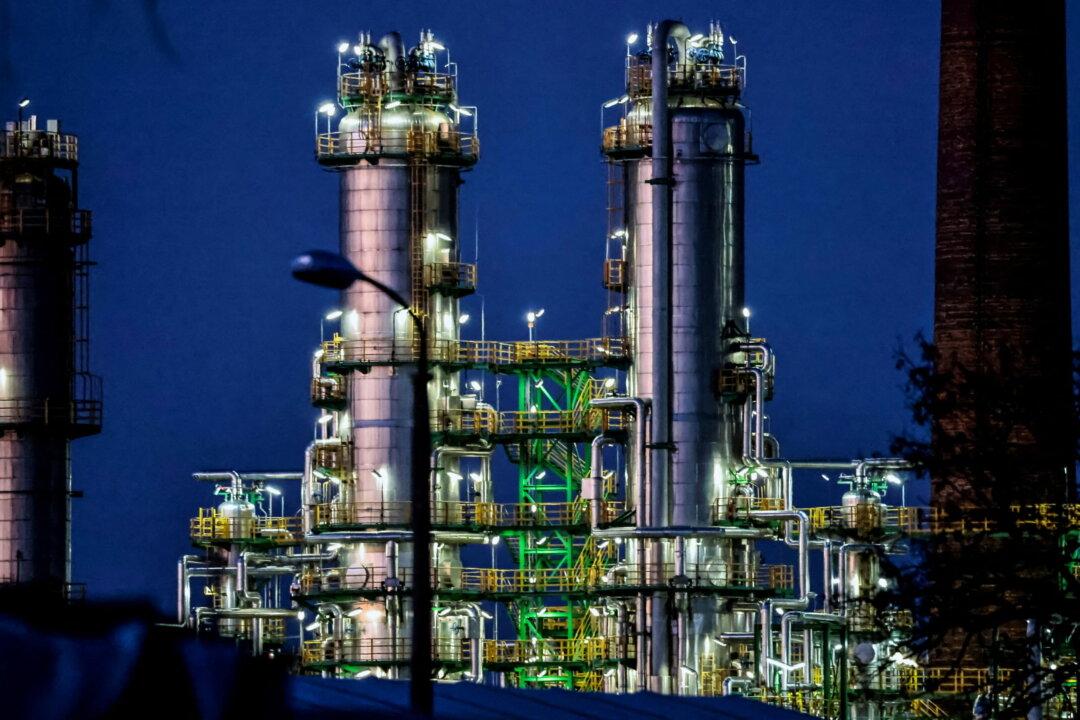Oil prices spiked 5 percent Wednesday after disruptions to Kazakh crude exports and growing apprehension regarding European Union sanctions on Russian energy imports as the U.S. president meets with counterparts on the continent amid worsening conflict in Ukraine.
Brent has since stabilized after opening Thursday at $117.20 a barrel and trading at $117.58 as of 6:13 a.m. EDT. Wednesday’s rally was driven mostly by adverse climate-related supply disruptions at the Caspian Pipeline Consortium (CPC) pipeline and the aftereffect considerations of sanctions on energy-dependent Europe.





